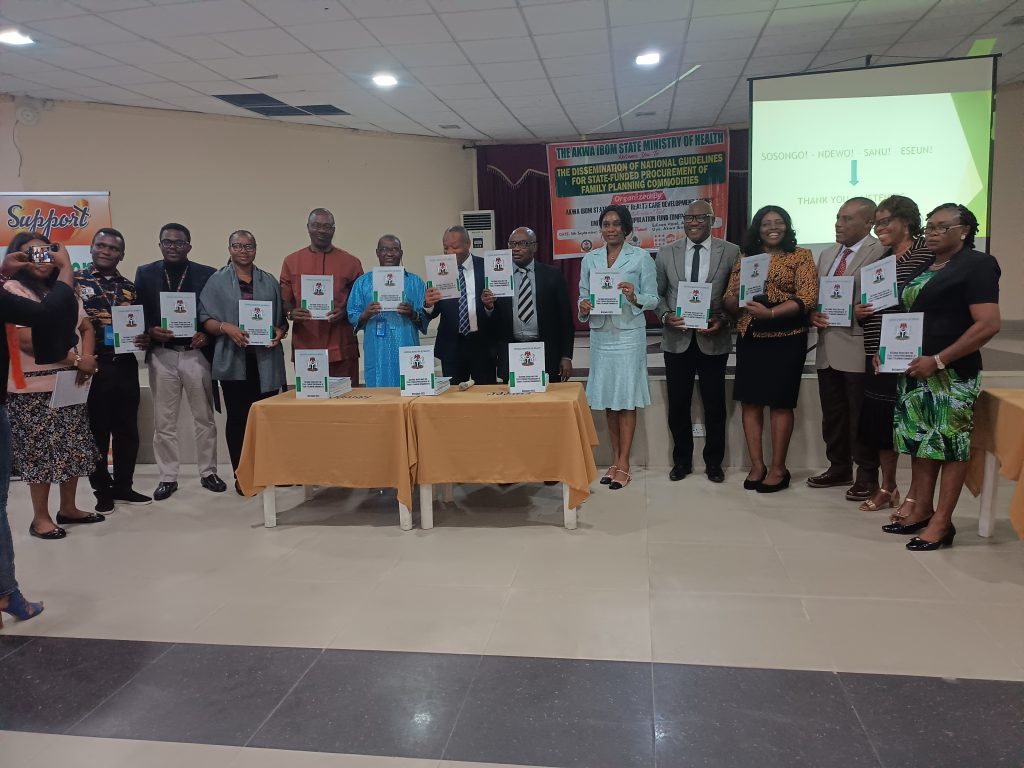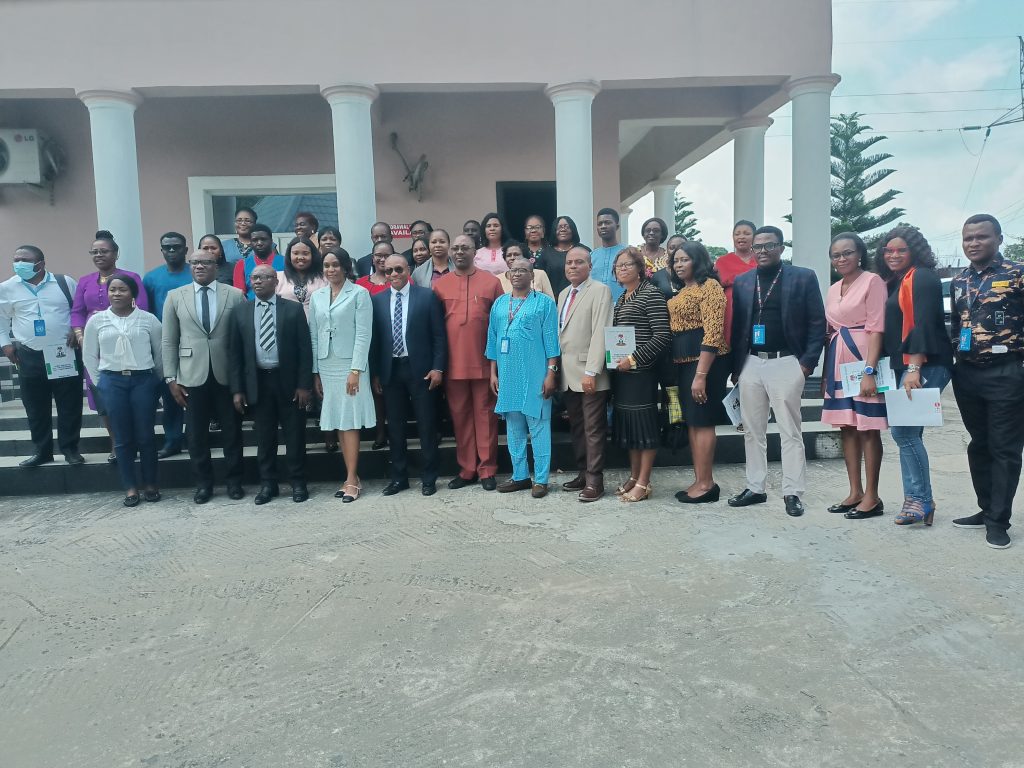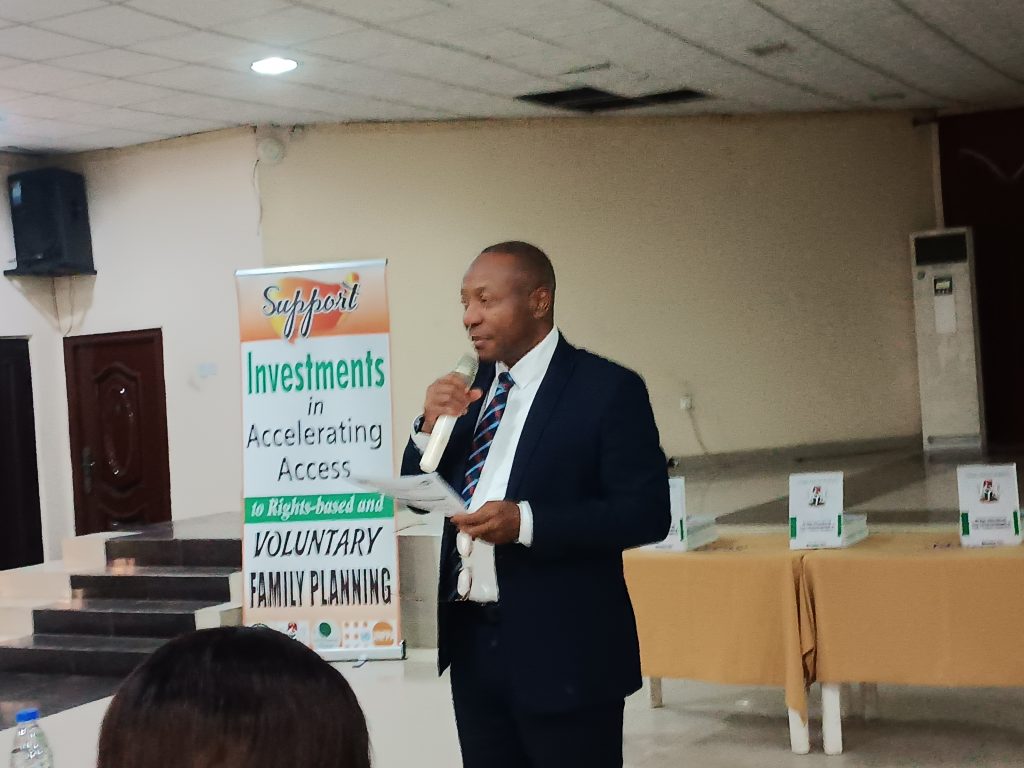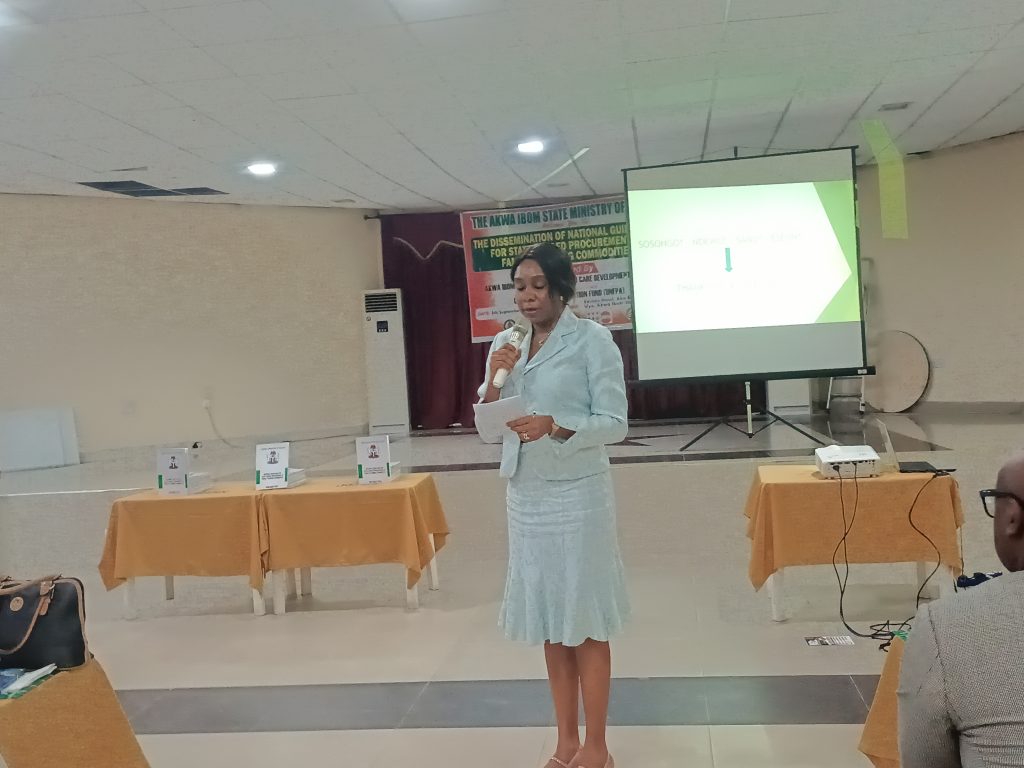Akwa Ibom Government Assures Availability, Accessibility of Family Planning Commodities

By Ekemini Simon
The government of Akwa Ibom State has expressed readiness to commence procurement of family planning commodities thus helping increase the uptake of family planning services by women of childbearing age in the communities.
The State Government made this known through the Commissioner for Health Akwa Ibom State, Prof. Augustine Umoh during a One- Day dissemination meeting of the National Guideline for State-Funded Procurement of Contraceptive Commodities held in Uyo on Monday, September 5, 2022.

Represented by the Permanent Secretary of the Ministry, Dr. Patrick Essien, the Commissioner said family planning and contraception play a major role in changing and improving the lives of women and girls in communities hence the reason the State will work to improve its availability and accessibility at the services delivery points.
The Commissioner offered insight to the fact that already, there are budget lines in the approved budget for procurement of family planning commodities.
He said the national Guidelines for State-funded procurement of family planning commodities is designed to relay the Federal Ministry of Health and Family Health Department practices in respect of Commodity Procurement Supply Management to help States institutionalize the steps required for their participation.
Prof Umoh added ” Family planning commodities supply chain management revolve around various processes undertaken by the Family Health Department (FHD) in the Federal Ministry of Health to achieve commodity security namely: forecasting, quantification; procurement; warehousing, distribution and inventory management: and pipeline monitoring with varied levels of efficiency.”
The Commissioner noted that the Guidelines will also cover two key aspects of family planning commodity supply management which are State level redistribution and Last mile distribution.
While stating that the role of stakeholders and health workers toward fostering availability of family planning commodities is very important, Prof. Umoh stated that with the National Guidelines, Akwa Ibom State hopes to achieve more on family planning services in the State since it will serve as a guide on procurement of family planning commodities.

The Commissioner thanked the United Nations Population Fund and the Federal Ministry of Health for the ongoing support on supplies of family planning commodities to the State. He equally thanked the Governor of Akwa Ibom State, Mr. Udom Emmanuel for the enabling environment for improved health services, in the State especially Reproductive/Family services.
On his part, the Commissioner for Finance, represented by the Permanent Secretary of the ministry, Mr. Mark Umoh assured that the Ministry will intimate the Governor on the need to give adequate funding for the project.
Also speaking, the Executive Secretary of the Akwa Ibom State Primary Healthcare Development Agency, Mrs. Eno Attah assured that his agency will work effectively to ensure the commodities are accessible across communities.

Earlier in his address, the Director and Head, Family Health Department, Federal Ministry of Health, Dr. Salma Anas said the meeting was important as it would be the beginning of the process of ensuring a sustained availability of family planning commodities and services through timely and adequate procurement of commodities using funds appropriated by the States.
He noted that Family Planning is globally recognized as an important strategy for the prevention of maternal morbidity and mortality even as it has also been used by many nations to achieve remarkable socio-economic growth and development.
Anas pointed out that the government of Nigeria has long recognized this fact hence the reason it has been supporting interventions aimed at increasing the delivery and uptake of family planning services by Nigerians of reproductive age across various communities.
The Director recalled that in 2011, the Federal Ministry of Health on behalf of the Federal Government of Nigeria had declared FP commodities free at all public health facilities as a result of the survey on ability to pay conducted FMOH in collaboration with partners which revealed that part of the reasons for low utilization of FP commodities was not being able to pay.
He stated that since the implementation of the ‘Free FP commodities policy’, demand for services has increased exponentially leading to huge increase in funding required for procurement of the commodities.
Anas added “Of course this comes with the challenge of sourcing the funds which is a major issue facing Nigeria’s Family Planning Programme presently. It is very clear that if this issue of funding inadequacy is not addressed and the increase in stock out of family planning commodities at the health facilities continues the implication for the country’s social and economic development would be far reaching.
“In the light of the above, the Federal Government of Nigeria (FGON), through the Federal Ministry of Health is committed to collaboration with the States and Development Partners such as the United Nations Population Fund (UNFPA) towards repositioning the National Family Planning Programme to facilitate the achievement of reproductive health commodity security (RHCS). RHCS will be attained when Nigerians of reproductive age are able to choose, obtain and use family planning commodities of their choice to meet their needs.”
He pointed out that the development of the Guideline was conceived to serve as a standardized framework for harnessing domestic financial resources from the States and FCT for adequate funding of the procurement of family planning commodities which he stressed is critical to the attainment of Reproductive Health Commodity Security in Nigeria.
The Director explained that proper implementation of the Guideline by the State and the Federal Capital Territory (FCT) is necessary for the achievement of the Family Planning Goal of 27 percent modern Contraceptive Prevalence Rate (mCPR) by the year 2030.
Anas commended the Government of Akwa Ibom State for being among the first set of States to adopt and disseminate the guideline.
He noted that he believes that further steps would be taken by the State Government to give effect to the contents of the Guideline with a view to providing adequate funds for procurement of family planning commodities so as to complement supplies from the Federal Government.







